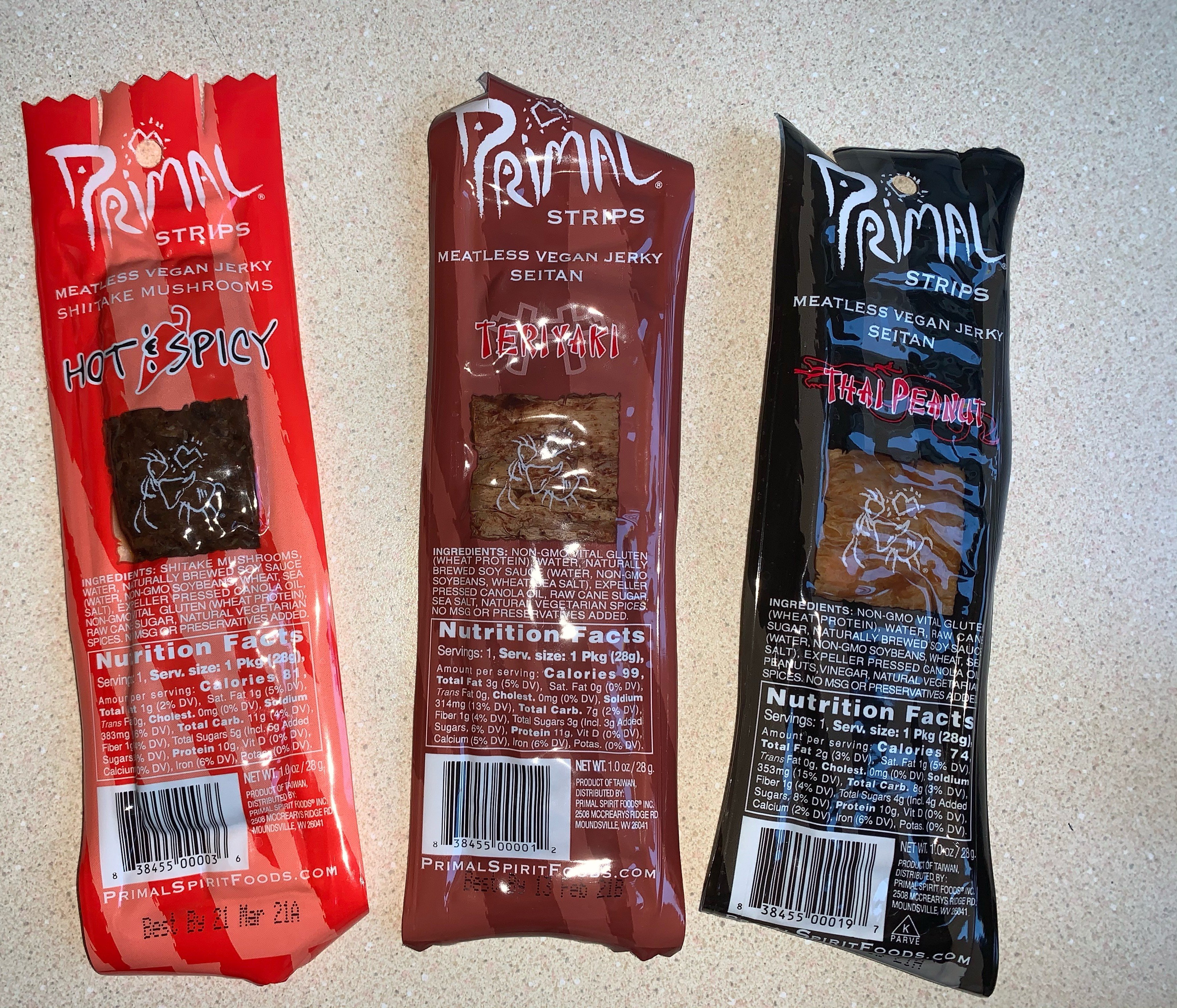Before I went vegan, I often craved the dry, spicy and tough composition of beef jerky. I devoured juicy red meat and cheered with glee each time my father started up the grill. Hamburgers were a weekend must in my family culture, and I loved every second when I dug into them.
When I found Primal Spirit Vegan Jerky in my first care package from home, I was skeptical, to say the least. The clear backing of the package exposed a muddy liquid surrounding the fake meat. After going vegan just three months prior, I was still navigating my way around the artificial meat industry. A multitude of brands have emerged in the market in recent years, each with hopes of capitalizing on the new environmentally-friendly trend in food products. But upon placing the jerky in my mouth, I was awestruck by the near-beef flavor. It tasted exactly like the sticks I had been consuming my entire childhood. And the most rewarding sensation of all was the lack of guilt in my chest.
The beef industry in America and around the world is one of the most economically inefficient food industries as a whole. With recent news surrounding the burning of the Amazon forest, more people have been turning toward vegetarianism and veganism to clear their consciences. The wastefulness of the beef industry can be understood by briefly examining the logic of the food chain. We grow crops to their maximum potential by pumping them full of fertilizers. We then spend an exorbitant amount of resources harvesting these crops. We could, of course, then directly eat these crops. For example, we make bread, eat corn and refine wheat into consumer goods such as cereal, crackers and flour.
But instead we choose the most calorie inefficient way to feed ourselves — we feed these crops to cows so that later down the food chain, those cows can feed us. After the feed is distributed, the cows then spend long periods of time grazing land and being fed these crops, all to be slaughtered in the end. The land use is inefficient, the food production is inefficient and the calorie conversion, reported by IOPscience, comes in around 3 percent. In other words, for every 100 calories we put into feeding livestock, we only receive, on average, three calories in return. The Proceedings of the National Academy of Sciences confirms that there is an opportunity food cost (the food production you give up when choosing to produce another type of food) of 96% just to produce beef. Meanwhile, we are capable of producing 20 times as much plant-based food as beef with the same resources. In terms of land use however, with all else held equal in post-production systems such as transportation, packaging and distribution, we see the direct impacts of choosing beef over plants. On the same land, the same PNAS study finds that we would be able to produce 20 times as much plant-based food compared to animal-based food. Producing meat for a large scale of people is highly inefficient and not sustainable in the long run.
Many people know that beef is an inefficient way to feed ourselves, but in a sense we “go with the flow.” If it tastes good, we eat it. We often don’t consider the various impacts of our meals, or consider what is necessary for a sustainable future that provides adequate calories for all. We tend not to consider the origins and history, in relation to calorie inputs, of our food, a negligence that increases our environmental footprints at the exact moment we should be working to decrease them. We must ask ourselves deep questions about the history of our food so we can make more economically sustainable choices every time we stack our plate.
When thinking about beef alone we need to ask: How many pounds of feed did the cattle consume before they were eventually eaten? How many calories of meat are gained from resources versus the potential plant-based calories? Are we operating in a way that is losing us money, resources and calories just for pleasure?
We must acknowledge that beef damages the food market as a whole. Beef consumption in the most general economic terms is inefficient, yet it becomes so difficult to draw ourselves away. For a world so focused on market efficiencies and accumulating wealth beyond measure, we are failing miserably in food production, distribution and calorie maximization. Because of this failing, we are wasting immense amounts of land and agriculture related resources that lead to various other environmental issues.
More than just reminiscence and nostalgia, the vegan jerky is exponentially better in terms of calorie production per given amount of resources. With advancements in fake meat products it’s becoming easier by the day to make economically efficient food choices. For those who love meat and fear missing the smokey flavor, I may have found the solution.
Contact Jenna Ruzekowicz at jruzekow ‘at’ stanford.edu.
